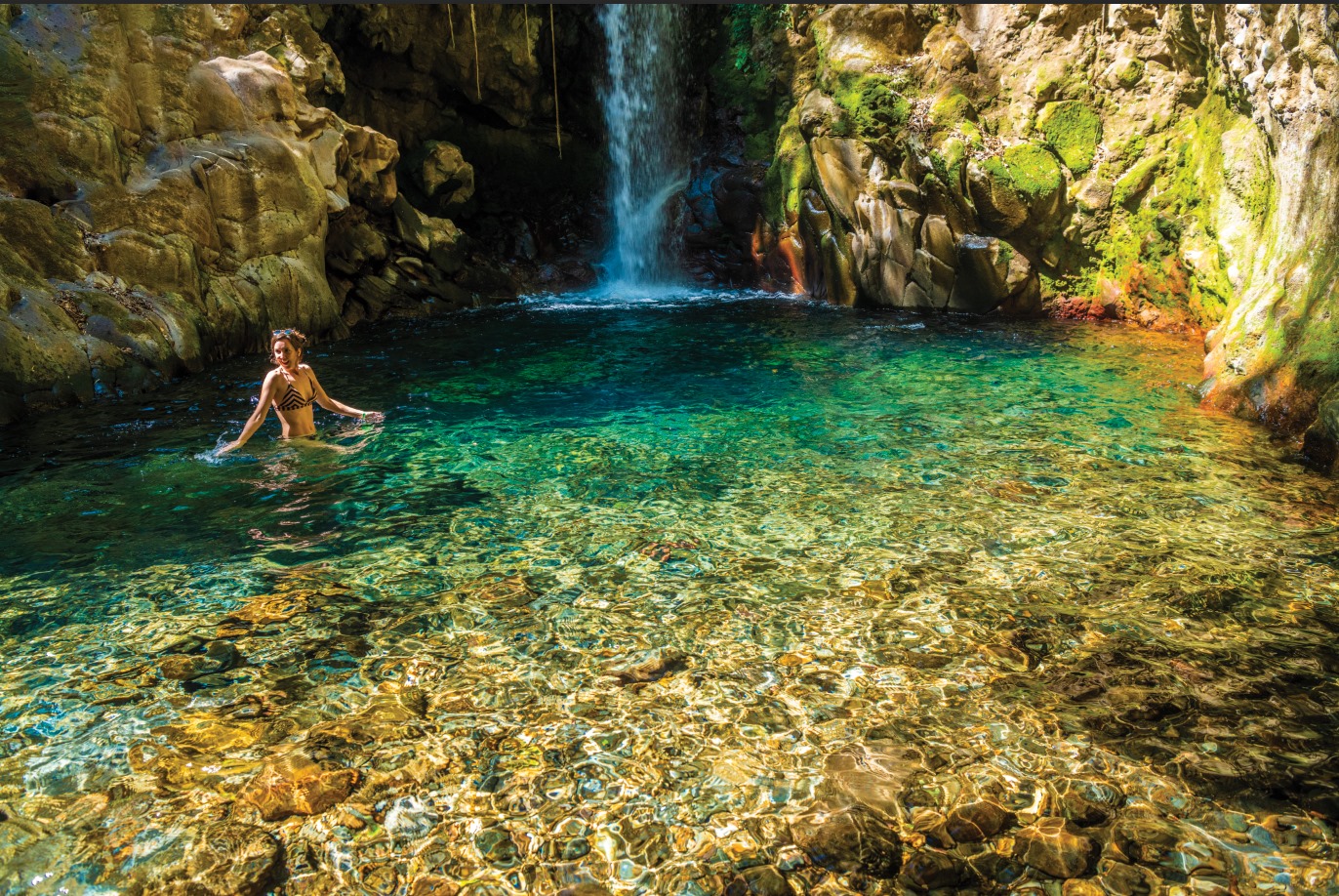Is 2023 the year you make sustainable travel a key element in your next vacation?
We’d like to help with ideas that are sure to connect with your head and your heart.
Let’s take an around-the-world look at some amazing sustainable travel options
Hotels/Resorts:
All-Inclusive Caribbean Resort Company Promotes Food Security and Island-First Initiatives

Through its philanthropic arm the Sandals Foundation, the Jamaican family-owned all-inclusive resort brand Sandals Resorts promotes sustainability in the Caribbean in an ongoing effort, focusing on initiatives like food security, marine restoration and tree planting. The Sandals Foundation works to plant food-bearing trees on land as well as mangroves underwater, which sustain coral reefs and provide nursery habitat for marine life. Sandals also source 90% of their food in Jamaica locally to support native farmers, and recently launched composting sites at select resorts throughout the portfolio. Guests can get involved on vacation during the upcoming Earth Day activation Trees for Life, with the goal of planting 500+ food-bearing, mangrove and forest trees on April 21, 2023. Also, Sandals crafted a program called Future Goals, that turns fishing nets sourced from the ocean and recycled plastic waste into soccer (football, for the locals) goals for children. Future Goals coaches have worked with 1,100 school children since the start of the program last year, and this number is anticipated to reach 1,500 this year. Through collaborating with local partners such as Limpi, a Curaçao-based plastic recycling company, more than 850,000 plastic bottle caps and 224 square feet of fishing nets collected locally from beaches and streets have been transformed into 56 goal posts. The portfolio’s newest resort, Sandals Dunn’s River in Ocho Rios Jamaica, opens in May 2023.
Conscious Design & Reef Conservation at Le Barthelemy Hotel & Spa

Travelers looking for a refreshing escape that’s equal parts eco-conscious, can venture to the tony island of St. Barth in the French West Indies to stay at the award-winning Le Barthélemy Hotel & Spa. Strengthening its commitment to sustainability, the 44-room boutique hotel recently introduced a zero-waste culinary concept and workshop headed up by Chef Vincent Gomis at its beachfront restaurant AMIS, and an expanded partnership with Coral Restoration St. Barth to offer interactive guided diving to rehabilitate the surrounding reef, beginning this April. The new initiatives build on the hotel’s conscious construction, which emphasizes an open-air, naturally-derived architecture to limit energy consumption by embracing natural-light and using solar energy, while incorporating organic and low-impact materials, such as locally hewn stone and wood, linens sourced from ethically-traced organic cotton and 60 percent (and growing) of in-room amenities sourced from ethical and environmentally-friendly labels. The brand ethos is centered around embracing and protecting the island’s natural flora and fauna, which is why all fertilizers, plants and soil on the property are organic, cleaning products are eco-friendly, sunblock and lotions sold on property are reef-safe, and desalination is employed for ecological water usage.
Luxury River Cruise Line Works to Kick Food Waste to the Curb

Under the leadership of their dedicated Sustainability Officer, Julie Higgins, Uniworld Boutique River Cruises is on track to reduce food waste onboard by 50% by 2025. Uniworld was the first river cruise line to publish an Impact Report, detailing progress against its eleven goals to transparently monitor and openly report on progress with the environment and make actionable commitments for future impact.
Uniworld utilizes Certified B Corporation® food waste reduction program Leanpath, to improve kitchen efficiency and prevent food waste on a large scale through data-driven waste tracking. By the end of 2023, Leanpath will be implemented across the entire Uniworld fleet. Uniworld’s food waste goal is just one part of their robust sustainability strategy, ‘How We Tread Right,’ which consists of eleven formal goals including eliminating single-use plastic, switching to renewable energy, achieving net zero by 2050 or sooner and offering guests sustainable tourism experiences in the form of ‘Make Travel Matter’ experiences, designed to engage and give back throughout their river cruising journey.
Upcycling, Shore Power, and Food Traceability: Holland America Line Focuses on Sustainability

As Holland America Line works toward its commitment to decarbonization, My Nguyen, Design Director, is making waves in sustainable interiors on board, setting standards for ocean liners at large. For example, My is leading the charge in specifying as much product as possible that meets sustainable criteria on board Holland America Line’s Rotterdam. She took on a 1.5 year project in collaboration with Origins to create carpeting made from 100 percent recyclable material – organic natural wool, with no dyes or chemicals. Beyond interior design, Holland America Line is focused on food traceability and limiting waste, plus recently becoming the first cruise line to achieve a Responsible Fisheries Management (RFM) certification, for certified-sustainable and traceable wild Alaska seafood, in addition to installing 68 biodigesters and seven food dehydrators to limit food waste. Holland America Line also utilizes shore power to reduce CO2 emissions in port.







